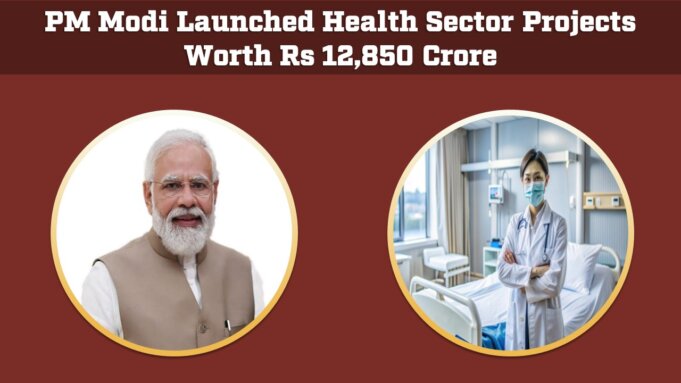As an expansion to the Ayushman Bharat Pradhan Mantri Jan Arogya Yojana (PM-JAY), the Prime Minister has broadened health coverage to include all senior citizens aged 70 and above, ensuring healthcare access irrespective of income. Additionally, in a significant step to bolster healthcare infrastructure, the Prime Minister inaugurated and laid foundation stones for several healthcare institutions across the country.
The Prime Minister inaugurated Phase II of India’s first All India Institute of Ayurveda, which includes facilities such as a Panchakarma hospital, an Ayurvedic drug manufacturing pharmacy, a sports medicine unit, a central library, an IT and start-up incubation centre, and a 500-seat auditorium. Additionally, new medical colleges in Mandsaur, Neemuch, and Seoni, Madhya Pradesh were inaugurated. Further service expansions were also announced at AIIMS in locations including Bilaspur, Kalyani, Patna, Gorakhpur, Bhopal, Guwahati, and New Delhi, which now also include a Jan Aushadhi Kendra. The Prime Minister also inaugurated a Super Specialty Block at Bilaspur Medical College in Chhattisgarh and a Critical Care Block in Bargarh, Odisha.
The Prime Minister also laid the foundation stones for five Nursing Colleges in Shivpuri, Ratlam, Khandwa, Rajgarh, and Mandsaur, Madhya Pradesh. In addition, 21 Critical Care Blocks were established in Himachal Pradesh, Karnataka, Manipur, Tamil Nadu, and Rajasthan as part of the Ayushman Bharat Health Infrastructure Mission (PM-ABHIM). Various facilities at AIIMS in New Delhi and Bilaspur also saw major upgrades.
The Prime Minister inaugurated an ESIC hospital in Indore, Madhya Pradesh, and laid the foundation for more ESIC hospitals in Haryana, Karnataka, Uttar Pradesh, Andhra Pradesh, and Madhya Pradesh, enhancing healthcare for 55 lakh ESI beneficiaries.
In line with his commitment to leverage technology to improve service delivery, the Prime Minister launched drone-based healthcare services in 11 tertiary healthcare institutions, including AIIMS in several states. Moreover, helicopter-based Emergency Medical Services were launched from AIIMS Rishikesh to improve emergency response capabilities.
The Prime Minister launched the U-WIN portal to digitize the vaccination process for pregnant women and children. It aims to ensure timely administration of vaccines for 12 preventable diseases in children from birth to age 16. A portal for allied healthcare professionals was also launched to create a centralised healthcare database.
In addition, the Prime Minister emphasized R&D infrastructure to strengthen the healthcare sector. He inaugurated a Central Drugs Testing Laboratory in Bhubaneswar, Odisha, and laid the foundation stones for Central Research Institutes in Yoga and Naturopathy in Odisha and Chhattisgarh. He also established four Centres of Excellence at NIPER campuses for medical devices, bulk drugs, and drug research.
Four Ayush Centres of Excellence were also launched, focusing on areas like diabetes and metabolic disorders, translational Ayurveda research, sustainable Ayurvedic practices, and systems medicine.
Under the “Make in India” initiative for healthcare, the Prime Minister inaugurated five new projects across multiple states under the Production Linked Incentive (PLI) scheme for medical devices and bulk drugs. These projects aim to manufacture high-end medical devices and bulk drugs.
Lastly, the Prime Minister initiated a nationwide campaign named “Desh Ka Prakriti Parikshan Abhiyan” to enhance health awareness, alongside a State-specific Action Plan on Climate Change and Human Health, designed to develop climate-resilient healthcare services nationwide.
Cover photo: freepik.com











